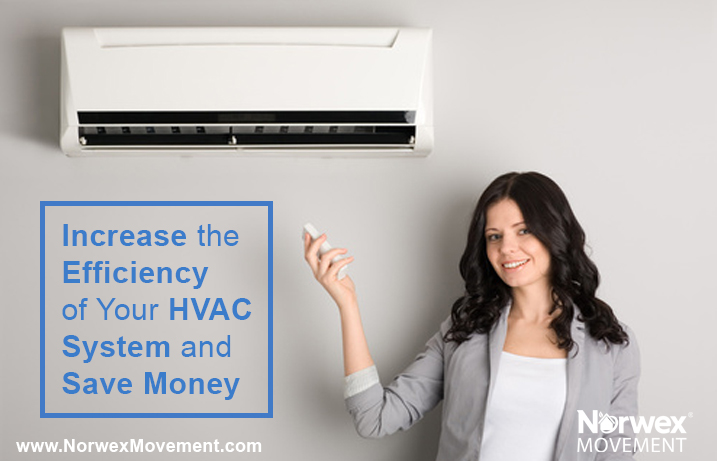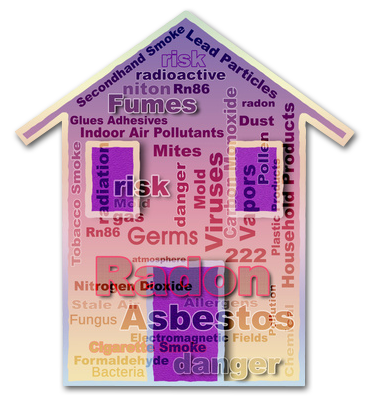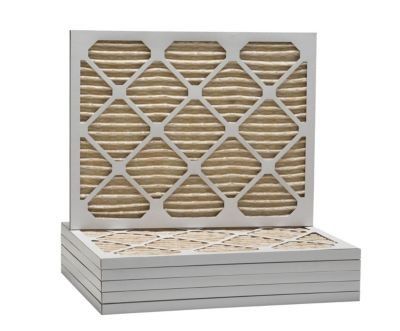

Did you know that indoor air pollution is one of the top five environmental health risks? It’s true—indoor air pollution continues to be a widespread problem. To ensure the air quality in your home is the best it can be, try to keep it well ventilated with clean, outdoor air. However, knowing this isn’t always possible, many homes rely on mechanical air filters, which unfortunately can vary in their effectiveness at removing pollutants.
Air Pollutants
It’s amazing what can float in the air unseen! Here are just a few of the different kinds of pollutants that could be lurking inside your home.

Because these particulates range in size from very small to very large, your air filter may or may not be able to capture them all.
What kind of air filter should you use?
Mechanical air filters are the most common type of home air filter. This category encompasses any type of dry media filter, including manmade, natural fiber and HEPA air filters. Their fibers trap pollutants and prevent them from circulating.
 The effectiveness of mechanical air filters is measured in MERV ratings, Minimum Efficiency Reporting Value. MERV ratings range from 1, the least efficient, to 20, the most efficient. The cheaper the air filter, the lower the MERV rating. Cheaper air filters must also be changed more frequently than air filters with higher MERV ratings. The higher the MERV rating, the more likely your air filter can capture smaller particles.
The effectiveness of mechanical air filters is measured in MERV ratings, Minimum Efficiency Reporting Value. MERV ratings range from 1, the least efficient, to 20, the most efficient. The cheaper the air filter, the lower the MERV rating. Cheaper air filters must also be changed more frequently than air filters with higher MERV ratings. The higher the MERV rating, the more likely your air filter can capture smaller particles.
It’s important to know that one of the main purposes of mechanical air filters is to protect your heating and cooling system. Using an air filter with the highest MERV rating could prevent airflow to your HVAC system. These should be used only in a whole-house filtration system or a stand-alone air purifier. Typically, residential systems with filters rated from MERV 7 through 12 can adequately remove airborne contaminants. Hospital and general surgery settings are where MERV 13 – 16 filters are typically used.
How often should you change or clean your air filter?
Many people don’t think to change or clean their air filters until they begin to see dust collecting on furniture. But really, your air filter should be changed at least every two to three months (and probably more often if you have pets and/or allergies). To save money and reduce waste from discarding used air filters, you can choose reusable air filters. These can be reused for several years with the proper maintenance.
Here is a handy video that further explains what all these air filter specifications mean:
 Keeping your air filters clean increases the efficiency of your HVAC system and lowers your electric bill—all while keeping your indoor air cleaner for your family. Do you have other tips for keeping your indoor air cleaner? We’d love to hear them. Just leave a comment below.
Keeping your air filters clean increases the efficiency of your HVAC system and lowers your electric bill—all while keeping your indoor air cleaner for your family. Do you have other tips for keeping your indoor air cleaner? We’d love to hear them. Just leave a comment below.Resources:
Great reminder! Thanks!
Its so important to change these!! I notice such a difference!
Our thermostat has a reminder to change the filter. This is very helpful!
That’s a great idea! Thanks for sharing, Trina!
I also use air purifiers in the house. With all my pets there is a lot of animal hair around my home.
I like to open my windows when it rains to let all the negative ions in to naturally purify my indoor air! <3